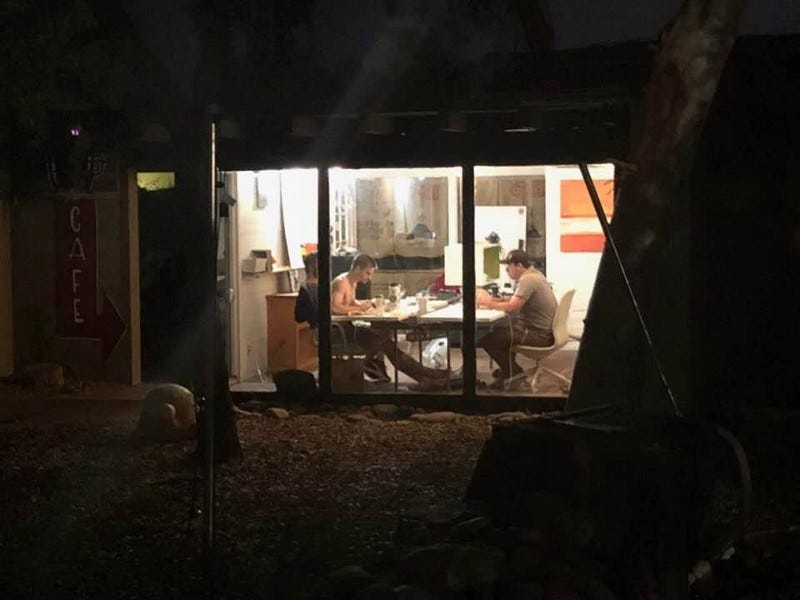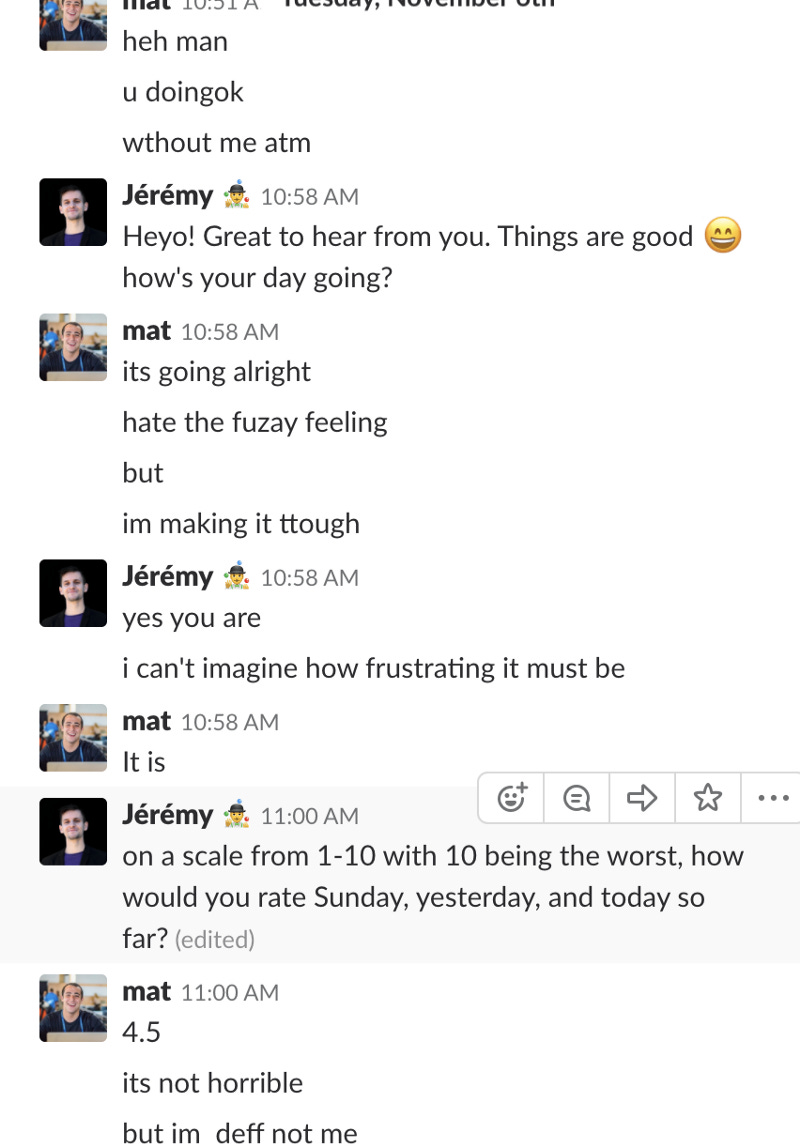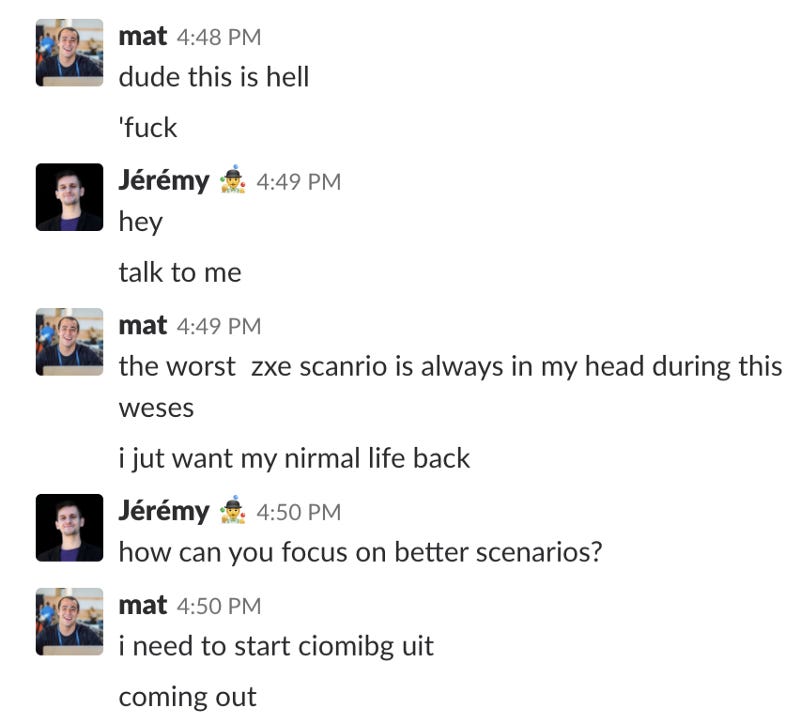Founder Tips: Using Your Mental Illness As Your Superpower
When you’re a kid, you have dreams that you want to tackle. You might want to be a Fireman. Teacher. Doctor. Your dreams may change but…
When you’re a kid, you have dreams that you want to tackle. You might want to be a Fireman. Teacher. Doctor. Your dreams may change but your ambition to do something bigger with your life likely won’t. Ever since 8th grade, I dreamed of being an acclaimed singer-songwriter. After I couldn’t find voice market fit (startup jokes), I decided to try my hand at entrepreneurship to see if I had it in me.
That led me to my first in revenue company, PubLoft. PubLoft is a marketplace that connects writers to startups who want to lower their CAC through inbound marketing. When I started PubLoft, a lot of my family was worried about me. No, not that I quit a “real job” and started a company. More that I started a company alone, and I should know better than that.
See, life has its way of throwing curveballs to derail you from your dreams. For some, it’s student loans. For others, it’s being brought up in the wrong place. For me, it was (and always will be) Kleine-Levin Syndrome. KLS is a neurological disorder where it sends people into disorientation and a sleep-like state for weeks on end.
I got my first episode in 2010. Seven years and 20 episodes later, I had somehow decided to punt all doubts that even someone with a severe medical condition can make their dreams come true. So I quit my job on two credit cards, no savings — and this thing living in my head — ready to roll the dice and see what the future had in store for me.
PubLoft 1.0

Yes, I did say I started PubLoft with two credit cards and no savings. From the first month on, it was a financial struggle to pay rent, much less build a company. Every month I figured out how to make just enough to live plus pay our writers. It was a massive struggle, and I often wondered if I could do it…And of course, I had in the back of my mind — the worry of what would happen if I have another episode? Still, I brushed it off.
One thing to know about KLS is that it is often brought out through stress. It shares that commonality with depression, anxiety, and dozens of other mental disorders. PubLoft — or founding any startup at that rate — was NOT good for my mental state, and I was asking for it. My stress was at an all-time high because I wasn’t sure if I was going to make rent, I had no idea how to do taxes (tax season was coming up), and I felt myself losing control of the company as our writers grew frustrated.
The inevitable smacked me in the face
And then an episode hit me. I had no business partner so for ten long days, PubLoft was dormant. Customers didn’t get their blog posts. Writers didn’t get paid. All sales conversations fell flat. All while I was chained inside of a cell within the bounds of KLS. I knew what was happening and couldn’t do anything about it. Once the episode ended, I rapidly tried to salvage the angry customers and dead sales pipeline. But it wasn’t happening. Sales were going down. Customers were leaving. We weren’t making enough for PubLoft to survive and for me to pay rent. A month later, PubLoft died.
What really killed PubLoft 1.0
After getting a ‘real’ job and spending months introspecting, I spent a lot of time figuring out “why me”? PubLoft would still be here if it weren’t for that episode. I was angry. Angry at my disorder and frustrated at the circumstances. It took me four months to realize that the only thing that killed PubLoft was me. If I were smarter, I would have put a team in place to carry some of the weight for me if anything were to come up. I would have built a business that could run without me. I would have kept enough reserves in the bank for the ‘what if.’ But I didn’t. KLS didn’t kill PubLoft, I did. And if I could give anyone advice from what I learned, the harsh reality would be:
Don’t be a single point of failure
Ask for help
And have a backup plan
Call me crazy, but just four months later, I decided I was going to bring PubLoft back — the right way.
Enter PubLoft 2.0
But first I needed to learn from my mistakes. The two big ones being: I didn’t have a business partner, and we were WAY too inexpensive.
Co-founder: So, I ended up working with the most talented guy I know, Jeremy Chevallier. He is an operator, designer, and creative (and luckily one of my best friends). It started as him just helping me design business cards, and then before he knew it, I put him on the pitch deck as a co-founder. He was doing founder level work, and I needed a co-founder for various reasons including support, sanity, and the good-ole backup plan.

Price: We also raised our prices considerably to give us better margins and to allow us to pay writers more per post. We tried to get our old clients back at the new price point, but they wouldn’t pay it. This meant we were starting from a blank slate and had to build our customer base from scratch once again. For me, raising the price gave us the ability to invest back into PubLoft by hiring better writers and editors. This was 100% worth the temporary struggle as it has resulted in better output and happier customers.
With Jeremy by my side and a higher caliber of writing, we were doing very well. We grew 100% monthly for the first 3 or 4 months. We did well on Product Hunt and got in the Phoenix Business Journal. Having a co-founder was paying off, simply because I had someone in the trenches with me. But I didn’t realize the criticalness of the role he was playing until later that year.
I had another episode
I don’t remember it, but Jeremy does. I walked into the office and told him I wasn’t feeling well. He connected the dots and realized I was in an episode. The role he played in the next two weeks is something I am eternally grateful for. He got into my email and was me for two weeks. He answered my emails, rescheduled my calls, and held the ship steady while I was battling my own storm in my head. It’s hard to understand the extent of KLS, so this conversation with Jeremy might paint a better picture for you.


He did everything as well as he could, and PubLoft didn’t skip a beat. About 12 days later, I was feeling better and came back to a fully functioning company with no fires to put out, thanks to Jeremy. I wrote a detailed post about this episode here.
Wow. The episode before this killed PubLoft and this time just a year later, nothing changed, simply because I had the right co-founder. Powerful.
The Superpowers KLS has granted me
Now, PubLoft is kicking, we have an excellent team, and we even got into Jason Calacanis’s LAUNCH Accelerator. Someone with no technical skills or business experience shouldn’t be able to sustain this much uncertainty over two years, but I think the reason I can do so is that KLS granted superpowers that I’m only now understanding.
1. Social skills
I couldn’t drink or smoke in college because of KLS, so I didn’t. I still joined a fraternity, and I partied my nights away. But I needed to learn how to socialize with all types of people who were on different levels of intoxication, while I was sober. Never having used alcohol or drugs as a crutch made me learn how to have a confident and honest conversation with anyone. Today, I’d say one of my best skills is just talking to people.
Strong social skills and confidence are crucial when running a startup. Whether it’s fundraising, getting new customers, or recruiting the best talent, the ability to converse with different types of people is critical to achieving success.

2. Resilience
Friends, I’ve been through some shit. I’ve had cables strapped to my head, I’ve been diagnosed with Schizophrenia, and I’ve been “that crazy kid” at school. I had to drop out of my senior year of high school, I’ve been stuck in Mexico, and I’ve lost friends because of this thing in my head. On the surface, I look like this average 6'2 white guy. But the worst of KLS is over. 20(ish) of my 23 episodes happened between 2010 and 2017. I was iron, and I was thrown into the flames, and out emerged steel. If I can deal with this KLS stuff, I can push through and build an enduring company — that’s the easy stuff.
Early on as founders, one of the most common words we hear is no, whether that’s during fundraising, selling, or market testing, and our biggest competitor is apathy. The sooner you can train your mind to brush off these rejections or lack of interest, the more effective you will be as a founder. Follow your passion and don’t quit.
3. Empathy
I look at the world differently now. I know what it’s like to be crazy and sane at the same time. This gives me an immense amount of empathy for other people’s struggles. Recently, I saw a homeless man on the street. His sign said something to the effect of “Mental illness. Please help.” Everyone was walking right by him, but Jeremy and I decided to buy three hotdogs. One for him, two for us, and we sat and talked. We talked about life, medication, and making it through the day with a disorder. I got emotional right after. I feel privileged that I see both sides of the world and therefore can help both sides.
As a founder, you’re working with people all day. Their performance is directly related to the companies performance, and stress can get the best of you especially if you’re new to leading a team. A bit of empathy can go a long way to building a culture that your employees wants to be a part of and share. Without empathy, creating a culture of trust and supportiveness is impossible.
How to deal with your own obstacles
One in five adults are struggling with a mental disorder, and I’m sure many of those people don’t start a business because of what’s living in their head. I have some tips for those people. No one should be afraid to make their dreams work for them, even if life’s obstacles seem mind-numbing.
Build a support system
Get a business partner and be honest and vulnerable with him or her. You will feel uncomfortable at first, but they will feel empowered and happy you opened up to them. There’s a reason they joined you on this crazy journey. Sharing your obstacles with them will make your business and relationship stronger.
Also, try to get your significant other, friends, and family involved as well rather than pushing them away. Madeline, my girlfriend, plays a crucial role in helping me get better each time so I can get back to a healthy life.
Don’t live in fear
We weren’t put on this world to be limited by something out of our control. Regardless of what lives in your brain, you can beat it. Try things that scare you a little, and don’t be afraid to fail. Because a life lived in hesitation is a life wasted. Accept how you were made, embrace it, and use it as your slingshot into life. Maybe you can even call it your superpower.
Hone your superpower
If you have a mental disorder, think about the unique perspective you have to offer the world. You see things differently, think creatively, and oftentimes have been forged by your disorder. Own it, and make it work for you. Maybe you weren’t given the disorder to suffer. Maybe it’s your own flame, and you’re just fighting to turn that iron into steel.
With a support system, fearlessness in your eyes, and reframing what you have as a superpower, you are now equipped to take life by the horns and — excuse my french — take your version of KLS and make it your bitch.
Originally published at https://www.atrium.co on May 9, 2019.


